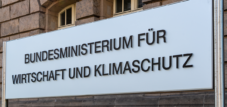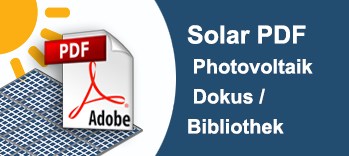Energy transition in limbo: The fate of the solar package I and how the solar dispute in Germany is slowing down climate protection
Language selection 📢
Published on: March 27, 2024 / Update from: March 27, 2024 - Author: Konrad Wolfenstein
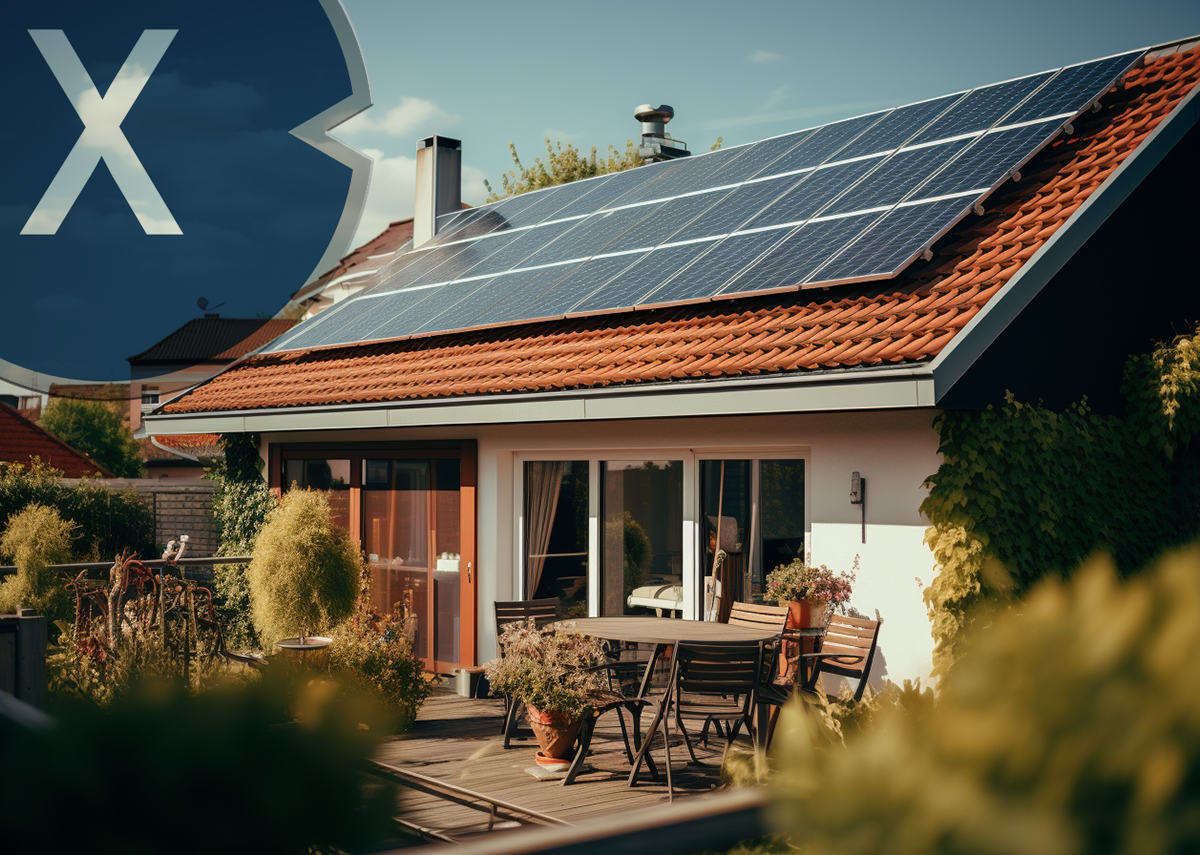
Solar dispute in Germany: How the discussion about solar package I slow down climate protection - Image: Xpert.digital
🔆 The 'solar package i' - core topic of the current energy policy debate
🌱 At the center of the current energy policy debate in Germany is the “solar package I”. This comprehensive package stipulates the expansion of photovoltaics vigorously, which, considering the climate crises, represents a necessity and a great opportunity. For a long time, the renewable energy industry was expected to make this package a significant contribution to the urgently needed energy transition. Instead, it turned out that the negotiations have stalled - above all due to disagreements about so -called resilience bonuses.
🤔 Effects on the solar projects and climate goals
The frustration within the industry is noticeable, because the plans for important solar projects that should pave the way to a sustainable energy supply have stalled. But what does this mean specifically for Germany and its climate goals?
🎯 climate goals and photovoltaic expansion
Germany has set itself ambitious goals to counter the challenges of climate change and to reduce the dependence on fossil fuels. Among other things, the performance of photovoltaics is to be increased to over 200 Gigawattpeak (GWP) and 400 GWP by 2030. At the current time, about 12 percent of electricity requirements in Germany are covered by photovoltaics, with an installed output of around 80 GWP.
🚀 The solar package I as a solution for bureaucratic hurdles
But reaching these goals is only possible if the investment conditions for solar systems are improved. The solar package I should do exactly this: reduce bureaucratic hurdles and simplify planning processes. The necessity is obvious, since the increasing financing and labor costs in the implementation of solar systems slow down the energy transition and investors deter.
✊ necessary market liberalization and bureaucratic relief
The key to success is to no longer exclude large parts of the population and companies from access to inexpensive solarner. To achieve this, liberalization of the market structures and a reduction in bureaucratic stress are essential. The vision are simple, quick and transparent processes - from the first building application to the final commissioning of a solar system.
🏠 Diverse uses of photovoltaics
The possibilities of photovoltaics are diverse and not only include the large-scale installation of solar parks, but also the use of unused roof areas on company and rental houses. Even on inferior soils - i.e. at locations that are less suitable for conventional agriculture - solar systems could make a valuable contribution without competing for food production.
🔋 the role of energy storage in the photovoltaic system
In addition to the pure power generation through photovoltaics, memory systems also have to focus on, because they enable more flexible use of the solar generated electricity. Photovoltaics without appropriate storage solutions would always reach its limits if the sun does not shine. Energy storage systems can serve as a key component to stabilize the energy supply and increase the penetration of renewable energies on the network.
🌾 Potential of Agrarphotovoltaic systems
Interesting approaches also offer Agrarphotovoltaic systems. These combine energy generation with the agricultural use of areas - a concept that creates additional benefits in a variety of ways and can reduce the area conflict between food production and energy generation.
🤝 Support by various interest groups
The importance of increased use of photovoltaics is also reflected in the voices of various interest groups, be it municipal representatives, agricultural businesses or farmers' associations. Everyone advocates a far -sighted and balanced expansion of the solar energy, in which the diverse interests of society are taken into account.
🔄 The paradoxical situation in the solar package I
The deficit in the adoption of solar package I is all the more paradoxical than that solar energy is able to contribute quickly and effectively to the national energy and climate strategy. It promises climate protection, security of supply and economic advantage and is therefore a load -bearing pillar for the future viability of German energy policy.
💼 The urgency of the solar package implementation
It remains to be hoped that the package will not stay with a law, but that it will be passed and implemented in a timely manner. Because not only ecological benefits are at stake, but also thousands of jobs and the business location of Germany in view of a global competitive market. It is time to act - for a sustainable future with clean electricity, for the security of the upcoming generations and the obligation to preserve the beauty and diversity of our earth.
📣 Similar topics
- 🌞 “Solar package I” for Germany's energy future
- 🔄 Challenges and opportunities of photovoltaic expansion
- 🚧 Solar projects that mean: What does that mean for the climate goals?
- 💡 Renewable energies as a key to reducing fossil fuels
- 📉 Investment conditions and bureaucracy: hurdles for solar energy
- 🏗 Vision of the simplified processes in solar plant construction
- 🏞 Use of unused areas: Potential of photovoltaics
- ⚡ Photovoltaics and energy storage - the future of flexible electricity use
- 🌾 Agrarphotovoltaic: Innovation at the interface of agriculture and energy
- 📢 Interest associations and the demand for a balanced solar energy expansion
#️⃣ hashtags: #Energie policy #nereierebarenenergies #solarpakei #Klimaschutz #photovoltaik
📌 Other suitable topics
🎯🎯🎯 Benefit from Xpert.Digital's extensive, fivefold expertise in a comprehensive service package | R&D, XR, PR & SEM

AI & XR 3D Rendering Machine: Fivefold expertise from Xpert.Digital in a comprehensive service package, R&D XR, PR & SEM - Image: Xpert.Digital
Xpert.Digital has in-depth knowledge of various industries. This allows us to develop tailor-made strategies that are tailored precisely to the requirements and challenges of your specific market segment. By continually analyzing market trends and following industry developments, we can act with foresight and offer innovative solutions. Through the combination of experience and knowledge, we generate added value and give our customers a decisive competitive advantage.
More about it here:
🌞 Promotion of the solar industry: strategic relevance for Germany and Europe
🏭 the need to promote renewable energies
The topic of promoting renewable energies and in particular the solar industry is of great strategic relevance for Germany and all of Europe. The energy policy of recent years has shown that the dependence on foreign energy deliveries, be it natural gas from Russia or solar modules from China, is a critical risk of energy security security. This has illustrated the need to strengthen domestic production and develop resilient energy sources.
💡 Solar package 1: Measures and challenges
The so -called “solar package 1”, which was presented and adopted in August 2023, is an attempt to meet the interests of climate protection, energy security and economic reason. It should lay the foundation stone for greater promotion of the solar industry, for diversification of energy deliveries and for a more resistant infrastructure. However, the implementation of the package has been delayed, which has reinforced the displeasure of many actors in the energy industry. The quick implementation of political resolutions is crucial to advance the expansion of renewable energies and thus comply with the demanding climate goals.
🌿 Environmental aspects and the CO2 reduction destination
The replacement of carbon -intensive energy sources by renewable is an essential step to reduce the emissions of greenhouse gases. A significant CO2 reduction could already be recorded in the electricity area, which shows that the measures can work in principle. Nevertheless, lack of space, bureaucratic hurdles and lack of network expansion hinder the development of solar energy in Germany - a state that is not acceptable in view of the urgency of climate change.
🌐 Globalization and local industry
The relocation of the production of German solar companies abroad raises questions about the need for a domestic industry. It is essential to find a balance between promoting a competitive domestic industry and the open recognition of the advantages that the world market offers. Reducing the costs for the expansion of solar energy by imports is undoubtedly an important aspect; But that should not be done at the expense of the loss of know-how and innovative strength that can be found in German companies and research institutions.
💸 Economic factors and subsidies
The respected company Meyer Burger has already decided to close their production in Freiberg because there is no state support. This case illustrates the balancing act between the necessary state support and a subsidy race that could have negative consequences in the long term. Subventions are a hot iron, both politically and economically. You can play an important role to protect the solar industry from temporary hardship, a market alone cannot always bear all social and economic consequences.
🛡️ The resilience bonus and its implications
Another component of the solar package was the proposal of a resilience bonus, which is intended to incorporate consumers who invest in German or European solar modules with a higher feed -in tariff. This could be understood as a protectionist measure that migrates the free trade principle and in the long run could lead to isolation and less efficiency in the European internal market. On the other hand, it could also be considered a strategic investment in a more diversified, more robust European economy that can provide important technology and infrastructure in the event of delivery bottlenecks.
📉 market mechanisms and political arguments
Arguments against such measures as they are presented by the FDP or some economists are based on the assumption that free markets can solve problems through supply and demand. While this is often the case under stable conditions, unexpected events and disorders must be considered that affect the supply chains and question the promise of the free market.
💼 Financial policy and adaptability of the markets
Finance Minister Christian Lindner relies on the adaptability of the markets in the event of a delivery freeze, as was observed in the past in the gas crisis. However, the past also shows that excessive dependencies in strategically important sectors are anything but desirable, which requires careful political design to maintain and promote independence.
🚀 Future plans and objectives for 2030
The goal of covering at least 40 percent of the solar energy required in the EU by 2030 raises questions about the feasibility. While intensive promotion of domestic production can lead to increasing costs, it is also important to ensure long -term availability and control over critical infrastructures.
🤝 the debate about solar package 1 and its effects
The “Solar Package 1” and the ideas contained therein such as the resilience bonus have triggered controversial discussions that raise the fundamental questions about the future orientation of energy policy in Germany and Europe. The balance between cost efficiency, independence, promotion of innovation and climate protection remains a challenging task for political design. It is certain that solar energy as a key technology will play a central role in sustainable energy future and that politics must create suitable framework conditions so that Germany and the EU can remain competitive in this area and achieve their climate and energy policy goals.
📣 Similar topics
- 🌞 A new age: Solar package 1 as a pioneer for Germany's energy independence
- 💡 Tension field solar industry: between funding and market efficiency in Germany
- 🌍 Critical consideration: Germany in the dilemma of solar module imports
- 💥 focus on politics: delays in the solar package and the consequences for climate protection
- 🔋 breakthrough or obstacle? The debate about the resilience bonus in the solar package
- 🏭 Location question: The relocation of German solar production abroad
- 🌱 Green future: How realistic is the EU's 40 percent goal for solar energy?
- 🌐 Energy policy in conflict: Free trade vs. Promotion of domestic solar industry
- 📉 Meyer Burger's closure: a wake -up call for government support in the solar industry?
- ⚖️ between market and politics: subsidies in the solar industry as a double -edged sword
#️⃣ hashtags: #erneuerenenergie #solar package #energy independence #solarenergy #Energie policy #Klimaschutz #energiesicherheit #innovation #subvavenations #meyerburger
Plan your solar system for the most common applications conveniently online with our solar system planner!
With our user-friendly solar system planner you can plan your individual solar system online. Whether you need a solar system for your home, your business or for agricultural purposes, our planner offers you the opportunity to take your specific requirements into account and develop a tailor-made solution.
The planning process is simple and intuitive. You simply enter relevant information. Our planner takes this information into account and creates a tailor-made solar system that meets your needs. You can try out different options and configurations to find the optimal solar system for your application.
Additionally, you can save your plan to review later or share with others. Our customer service team is also available to answer your questions and provide support to ensure your solar system is optimally planned.
Use our solar system planner to plan your individual solar system for the most common applications and advance the transition to clean energy. Start now and take an important step towards sustainability and energy independence!
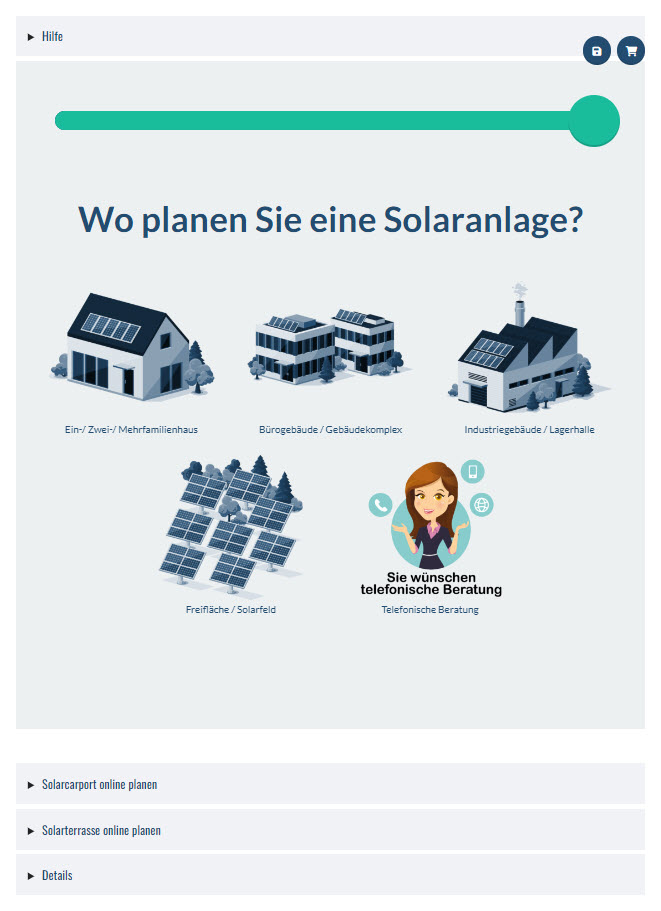
The solar system planner for the most common applications: Plan the solar system online here - Image: Xpert.Digital
More about it here:
🌞 This is what the resilience bonus is about: strengthening the solar industry in Europe
💡 Strategy and goals
The promotion of renewable energies and in particular the strengthening of the solar industry have taken on an increasingly central role in European energy and climate policy in recent years. Given the urgency to reduce carbon emissions and transition to a more sustainable energy supply, many governments, including Germany, have created incentives to encourage the expansion of solar energy.
🔍 Reducing import dependency
One of the strategic goals of these efforts is to reduce dependence on imports, particularly from countries such as China. China has dominated the global market for the production of photovoltaic modules for several years. This dominance has raised concerns about the security of supply and the competitiveness of European manufacturers.
🌳 Support through resilience bonus
In this context, the introduction of a so-called resilience bonus was discussed in the European Union and Germany. The key point of this measure is to provide solar system operators in Germany with a better financial position if they choose European-made solar modules. According to the proposal, operators could receive increased compensation of up to 3.5 cents per kilowatt hour for the solar power produced if they use solar modules that were produced in Europe.
🏭 Support local industry
The special tender conditions for European solar modules would also send a signal to the market that European politicians are willing to actively support the domestic industry. These measures could help stimulate a revival of solar module production capacity in Europe, thereby creating new jobs and retaining technological know-how locally.
📈 Economic and technological effects
The resilience bonus would serve a multi-layered purpose. First, it would boost demand for European solar modules, which should have a positive impact on the local economy. A strengthened sales market could encourage European manufacturers to invest in expanding their production capacities. This is important because such an investment not only diversifies supply chains, but also reduces dependence on single source countries such as China.
✨ Innovative strength and challenges
Another important aspect of promoting the European solar industry concerns the power of innovation. Europe has already demonstrated its ability to develop technologically leading solar modules and systems in the past. The resilience bonus could further strengthen research and development in this sector, allowing Europe to remain at the forefront of technological development or even expand it further. However, there are also challenges associated with the introduction of a resilience bonus. One criticism that is often voiced is the accusation of protectionism, which could lead to tensions in international trade. Promoting domestic products at the expense of foreign goods carries the risk of retaliation and could undermine the global open trading order in the long term.
💲 Economic efficiency and environmental aspects
There is also the question of cost efficiency. Solar power from China is often cheaper than European alternatives, at least to purchase. Although the higher initial investment in European products would be cushioned by the support measures, it is still essential that the differences in quality and performance justify the higher price in order to remain competitive in the long term. In this context, the environmental aspect must also be taken into account. To be a truly sustainable energy source, the solar industry should be viewed not only in terms of energy output, but also in terms of its own environmental footprint. Local production of solar modules could shorten transport routes and therefore reduce CO2 emissions associated with global trade.
♻️ Progress in solar recycling
Furthermore, the expansion of the European solar industry could make progress with regard to the recycling of solar modules. Currently, discarded solar modules pose a challenge due to the difficulty of disposal and recycling. In Europe, stricter environmental regulations and innovative recycling technologies could help improve the life cycle of solar modules.
🛡️ Energy policy independence and accompanying measures
Additional effects arise from strengthening energy policy independence. In the past, Europe has repeatedly been confronted with energy supply crises that were exacerbated by political conflicts or trade disputes. Local production of critical components of the energy landscape could increase Europe's resilience to external shocks. However, in order to derive the greatest possible benefit from the resilience bonus, accompanying measures would have to be taken. This includes investments in education and training to ensure that there are enough skilled workers to support the expansion of the solar industry. The infrastructure would also have to be improved in order to optimally integrate solar energy into the existing network.
⏱️ Time limit and efficiency review of the funding
Ultimately, it must be ensured that the funding measures are time-limited and regularly reviewed for their efficiency and impact. In this way it can be ensured that they do not result in permanent subsidies, but only serve as a starting aid to make the European solar industry competitive.
🌐 Part of the bigger picture
Overall, the resilience bonus appears to be an extremely ambitious and potentially effective measure to strengthen the solar industry in Europe and reduce dependence on imports. But it is just one piece of the puzzle in a larger picture in which market regulation, technological development and the creation of an enabling environment for innovation also play crucial roles. Efforts to establish a robust and sustainable solar industry in Europe could ultimately help Europe take a leading role internationally and make a significant contribution to global climate protection.
📣 Similar topics
- 🌞 Renewable energies: Strengthening the solar industry in Europe
- 🏭 Reducing CO2 Emissions: The Role of Solar Energy
- 🔌 Promoting solar energy: incentives and expansion in Germany
- 🇪🇺 EU policy: Introduction of the resilience bonus for solar systems
- 🛡️ Security of supply: Importance of European photovoltaic modules
- 🌱 Sustainable energy supply: reviving the European solar industry
- 📈 European economy: The influence of the resilience bonus on solar module production
- 💡 Technological development: promoting innovation in the solar industry
- 🌐 Global market: challenges and criticism of the resilience bonus
- 🔄 Solar panel recycling: Advances in the European solar industry
#️⃣ Hashtags: #RenewableEnergy #Solar Industry #CO2Reduction #Resilience Bonus #Security of Supply
📣 Energy-related renovation and new construction, consulting, planning and implementation for industry, retail and municipalities
Our experienced team will support you in optimizing your buildings to reduce energy consumption and promote sustainable energy use with photovoltaics. We analyze your individual needs and create tailor-made concepts that make sense both economically and ecologically. Regardless of whether it is about the energy-efficient renovation of existing buildings or the construction of new energy-efficient structures, we are at your side. Industrial facilities, retail buildings and municipal facilities can reduce their energy costs and reduce environmental impact while improving the comfort and efficiency of their buildings through our tailored solutions.
👨🏻 👩🏻 👴🏻 👵🏻 Energy-saving renovation and new construction, advice, planning and implementation for private households
We offer comprehensive support for private households in the energy-efficient renovation and construction of new buildings with photovoltaics. Our experienced team is at your side to help you advise, plan and implement your sustainable energy solutions. We analyze your energy consumption, identify savings potential and develop tailor-made concepts to improve your energy efficiency. From improving building insulation to installing energy-efficient windows and doors to installing photovoltaic and solar systems - we accompany you step by step to make your home more energy efficient and environmentally friendly. Trust in our expertise and benefit from the numerous advantages that energy renovation and the use of renewable energies offer you. Together we will create a sustainable future for your home.
The Federal Ministry of Economic Affairs and Climate Protection 🏛 is already working on the Solar package 2 🌞 | Photovoltaic strategy 💡 & Fit for 55 🌱
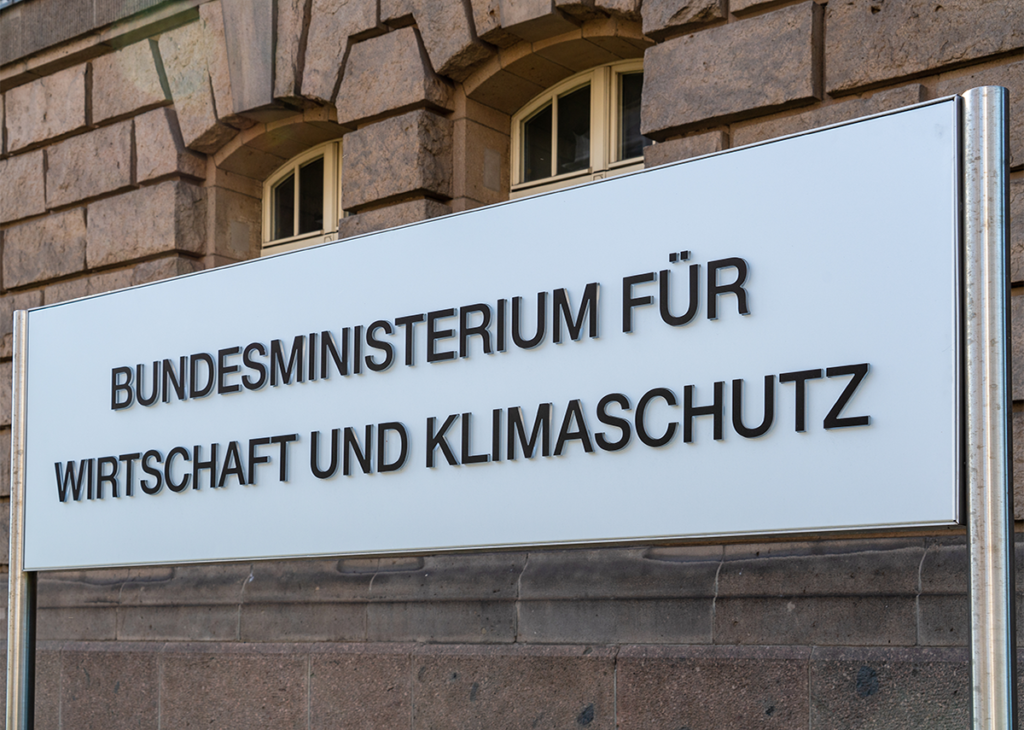
The Federal Ministry of Economics is already working on Solar Package 2 – Image: Mo Photography Berlin|Shutterstock.com
The Federal Ministry of Economics is already working on Solar Package 2, which aims to implement further measures from the “Photovoltaic Strategy”. This strategy was developed jointly by politicians and the industry in the spring. Solar Package 2 is a step towards a sustainable and future-proof energy policy.
More about it here:
We are there for you - advice - planning - implementation - project management
☑️ Construction and advice on photovoltaic open-space systems
☑️ Solar park planning ☑️ Agri-photovoltaic implementation
☑️ Solar outdoor systems with dual-use solutions
Xpert.Solar is your ideal partner for the planning, consulting and construction implementation of ground-mounted photovoltaic systems and agricultural photovoltaic projects due to our many years of experience and expertise in the solar energy industry. Xpert.Solar has an experienced team of professionals that offers tailored solutions to farmers and investors. From location analysis to financial and legal advice to technical implementation and monitoring, Xpert.Solar supports its customers professionally and reliably to ensure successful and sustainable implementation.
I would be happy to serve as your personal advisor.
You can contact me by filling out the contact form below or simply call me on +49 89 89 674 804 (Munich) .
I'm looking forward to our joint project.
Xpert.Digital - Konrad Wolfenstein
Xpert.Digital is a hub for industry with a focus on digitalization, mechanical engineering, logistics/intralogistics and photovoltaics.
With our 360° business development solution, we support well-known companies from new business to after sales.
Market intelligence, smarketing, marketing automation, content development, PR, mail campaigns, personalized social media and lead nurturing are part of our digital tools.
You can find out more at: www.xpert.digital - www.xpert.solar - www.xpert.plus











